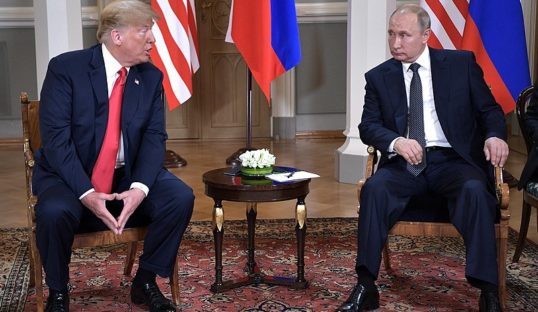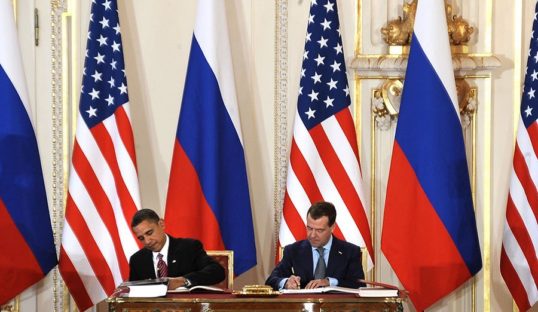Ambassador Steven Pifer is director of the Brookings Arms Control Initiative and a Senior Fellow with the Center for 21st Century Security and Intelligence and the Center on the United States and Europe in the Foreign Policy program at Brookings. He is a retired Foreign Service Officer with more than 25 years with the State Department, and specializes in arms control, Russia and Ukraine.
Ambassador Steven Pifer is Director of the Brookings Arms Control Initiative and a Senior Fellow with the Center for 21st Century Security and Intelligence and the Center on the United States and Europe in the Foreign Policy program at Brookings.
A retired Foreign Service officer, he has more than 25 years’ experience with the State Department. He served as Deputy Assistant Secretary of State in the Bureau of European and Eurasian Affairs with responsibilities for Russia and Ukraine, Ambassador to Ukraine, and Special Assistant to the President and Senior Director for Russia, Ukraine and Eurasia on the National Security Council. He also served at the U.S. embassies in Warsaw, Moscow and London as well as with the U.S. delegation to the negotiation on intermediate-range nuclear forces in Geneva.
From 2000 to 2001, he was a visiting scholar at Stanford’s Institute for International Studies.
His expertise are focused on arms control, Russia and Ukraine. He regularly comments on these issues in the media, and has featured on National Public Radio, PBS NewsHour, CNN, Fox News, BBC, and VOA.
He is the author of The Eagle and the Trident: U.S.-Ukraine Relations in Turbulent Times, and co-author of The Opportunity: Next Steps in Reducing Nuclear Arms. He has also written ‘Nuclear Arms Control Choices for the Next Administration’; ‘Obama’s Faltering Nuclear Legacy: the 3 R’s’; ‘Bilateral and Multilateral Nuclear Arms Reductions’; and ‘Ukraine’s Perilous Balancing Act’. His writing has appeared in The New York Times, The Washington Post, The Financial Times, The National Interest, The Moscow Times, and The Kyiv Post.
Ambassador Pifer is a 1976 graduate of Stanford University with a Bachelor’s in Economics.
Articles

Unattainable conditions for New START extension?
“Russian officials have reiterated their readiness to extend New START now. Amb. Billingslea’s conditions will thwart extension for the foreseeable future. That’s unfortunate. By not...

10 years after Obama’s nuclear-free vision, the US and Russia head in the opposite direction
“April 5 marks the 10th anniversary of the speech in which Barack Obama laid out his vision for a world without nuclear weapons. It did...

Experts React to the New Missile Defense Strategy
Ambassador Steven Pifer, Mr. Frank A. Rose
NSWG members Frank Rose and Steve Pifer, among others, respond to the release of the new Missile Defense Review. Read the full Brookings article here.

The Trump administration is preparing a major mistake on the INF Treaty
“Once the United States withdraws from the treaty, there is no reason for Russia to even pretend it is observing the limits. Moscow will be...

